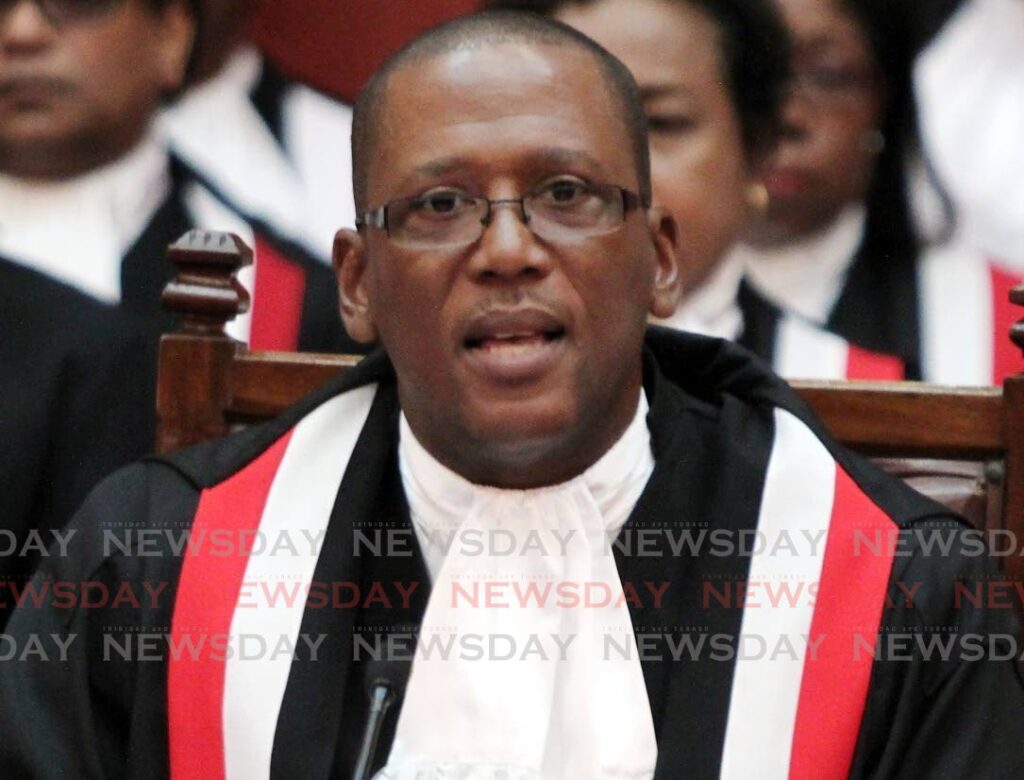Judiciary admits to probate problems

The Judiciary agrees that probate matters take “far too long.”
The admission was made in a two-page statement on February 7, in response to complaints about the probate process.
The statement said the Judiciary has “repeatedly and consistently” bemoaned the slow pace of the process in its attempts to address the situation.
“The situation that presents itself, however, involves issues that are in the main not in the hands of the Judiciary.”
The statement said recent meetings have been held with the Prime Minister and a sub-committee of Cabinet which have “provided hope.”
However, it said the problem was threefold, since it relates to staffing, quality of applications and the resultant backlog of applications.
The statement provided a background of the probate process, saying these matters are court cases done without an oral hearing and include applications for letters of administration of diverse types.
“Over 5,000 probate cases are filed each year and each is between 15-85 pages long. The settlement of a probate matter involves the submissions and actions of attorneys, the review by the staff of the Probate Registry, the stakeholder who wishes to have a matter settled and many factors that may call into question the entitlement of an applicant to apply to administer an estate and the granting or refusal by the court in the person of the Supreme Court Registrar.”
The staffing issues were identified.
“The Judiciary is hindered by the perennial problem of inappropriate staffing. Probate staff are required to review thousands of applications per year to determine whether they comply with law which is not always simple or clear-cut.
“There is a need for a greater number of experienced staff attending to probate matters; staff who are selected for, skilled and trained in the area.”
This, the statement said, was a “near-impossible feat,” since staff were recruited by and for the civil service with processes, procedures and skill sets that have little in common with those of the judiciary.
“The Judiciary cannot function effectively if it is staffed by a central civil service nor can it be effective while its staffing or human resource-management policies and procedures are dictated by policies that are not suited to a judiciary."
It said lawyers' legal work was being checked by clerks transferred from government ministries, Ministry of Labour relief staff, and on-the-job trainees.
“They work hard and often get it right, but for obvious reasons, they also sometimes get it wrong. The errors understandably bring the ire of attorneys and the public.
“The Judiciary continues to be bedevilled by a staffing situation that has existed and was identified as far back as 1892 when a commission reported to the then governor…”
Chief Justice Ivor Archie raised staffing constraints at the opening of the law term in 2023.
Wednesday’s statement made recommendations for the staffing of the registrar’s office and said despite previous entreaties by every chief justice, “The situation has not changed after some 132 years,” except that the caseload has grown exponentially and the negative effect of staff being recruited by and being part of a centralised civil service continues unabated.”
It said the situation has worsened. Temporary staff are sent for three-month periods, and OJTs leave after their two-year tenure taking their unique training with them.
“Inefficiencies are effects which are due to causes and it is unproductive to protest the effects while ignoring the causes. These causes have been made known and highlighted by every Chief Justice since independence…
“The Judiciary, unless it is given some autonomy and made into a ‘closed shop’ with the ability to determine its staffing needs, recruit and manage its staff fully, cannot hope to truly solve its efficiency issues.”
On the quality of applications, the statement said the poor quality of many of them was a problem.
“Of the thousands...filed annually, roughly 80 per cent are returned to attorneys with significant and justified queries.”
The statement spoke of the role of attorneys and some of their deficiencies in filing incomplete applications without the requisite supporting documents, which contributes to the delay, since probate staff must call on them to address the queries and file the relevant documents.
“Delays often may be between six months and as long as three years.”
The statement also attributed some of the problems in the quality of the applications to law clerks who prepare applications for attorneys “without an understanding of the law or the legal requirements of the particular type of application.
“Some attorneys now at the bar have no formal training in this area.”
To deal with the backlog, the statement said measures are being taken to eradicate it, but that requires skilled resources. Meanwhile, registrars and staff have been working exceedingly long hours to reduce it, but, the statement said, "This is not sustainable.”
The Judiciary said it continues to seek solutions and identified some of the measures already established to ease the problems.
These include putting annotated forms on the Judiciary’s website to help applicants; holding training sessions on drafting applications properly; introducing a system of managing searches through an e-probate portal; re-arranging and cross-training current staff; and creating different tracks of matters to ensure timely review.

Comments
"Judiciary admits to probate problems"